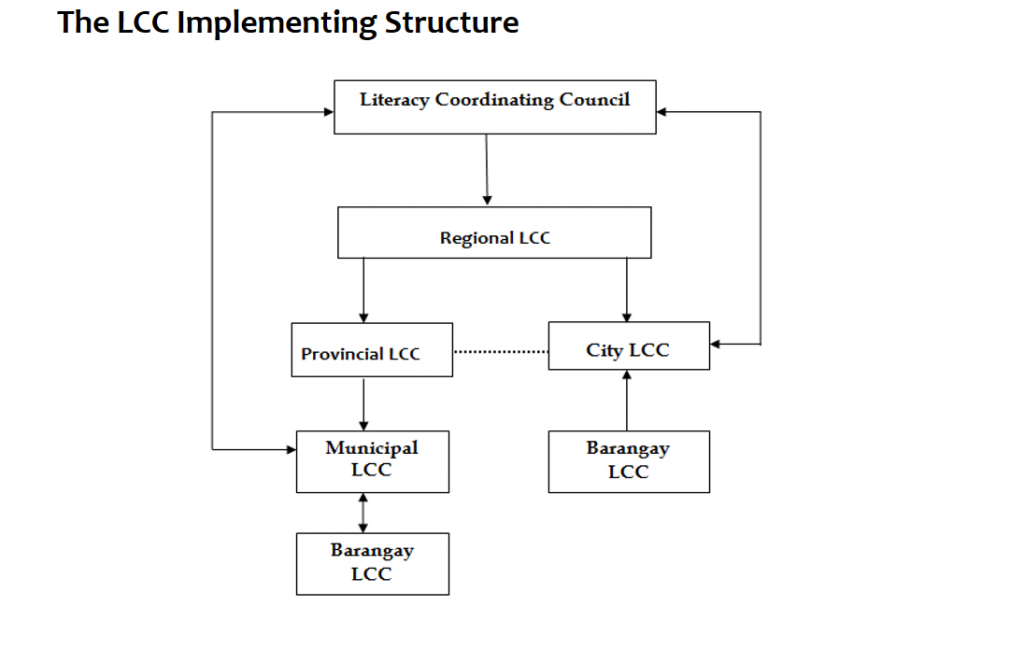It is suggested that every barangay establishes a Barangay Implementing Unit (BIU) chaired by the barangay captain and co-chaired by the head or principal of the barangay elementary or high school.
If a similar mechanism exists in the barangay, it is suggested that this be used and its functions expanded to include literacy concerns. The BIU composition includes representatives from existing community-based organizations, both government and non-government. It is also suggested that one member be designated to attend to reports preparation for transmittal to higher councils for appropriate action.
Functions of the BIU
- Research, plan, manage implementation, monitor, evaluate, mobilize and institutionalize barangay-based programs and projects;
- Consolidate/Make a synthesis of feedback, lessons learned, and insights gained from barangay-based programs and projects, for transmittal to MIUs, PIUs, RLCC, and LCC as input to national, regional, provincial, and municipal policy and program directions and strategy formulation;
- Generate resources, funds, and facilities for barangay-based programs and projects;
- Manage funds for barangay-based programs and projects;
- Plan and conduct of barangay-based advocacy and social mobilization activities, networking, and linkaging to ensure awareness, acceptance, and support by various sectors at the community level;
- Develop a barangay database on literacy and continuing education.
Suggested activities for the BIU
- Initiate data collection and validation and/or coordinate with/assist the Municipal Implementing Unit in data collection and validation through baseline surveys in their respective barangays and regularly update/submit accurate reports on literacy development and community profile to be utilized for policy formulation and project development;
- Conduct orientations and fora on different mandates/policies regarding literacy development, importance of literacy to overall community development, existing and proposed literacy projects, and successful literacy projects to gain community support;
- Mobilize/Gather target clients for information exchange, needs assessment, and consultative/participatory planning;
- Develop project proposals and action plans responsive to the literacy and socio-economic development needs of target clients, to be done with target clients;
- Allocate barangay fund for literacy development and/or conduct activities for fund generation, materials acquisition, and technical assistance;
- Implement, manage, supervise, monitor, evaluate, and document projects on literacy development which were implemented on their own or reviewed, approved, or supported by either the PIU, LCC, or sponsoring agencies; and
- Document activities on literacy and submit reports to MIU, PIU, and LCC.
